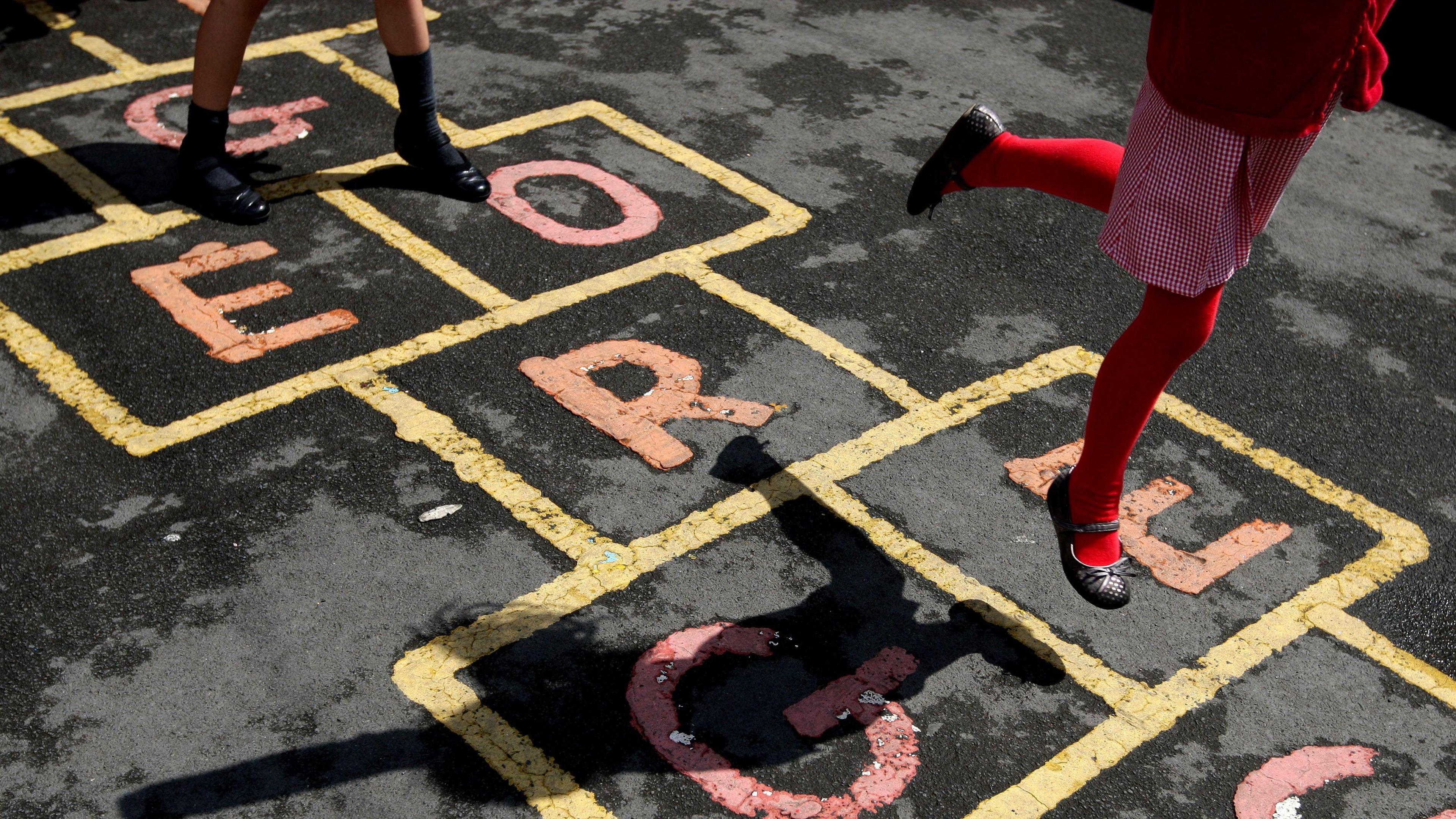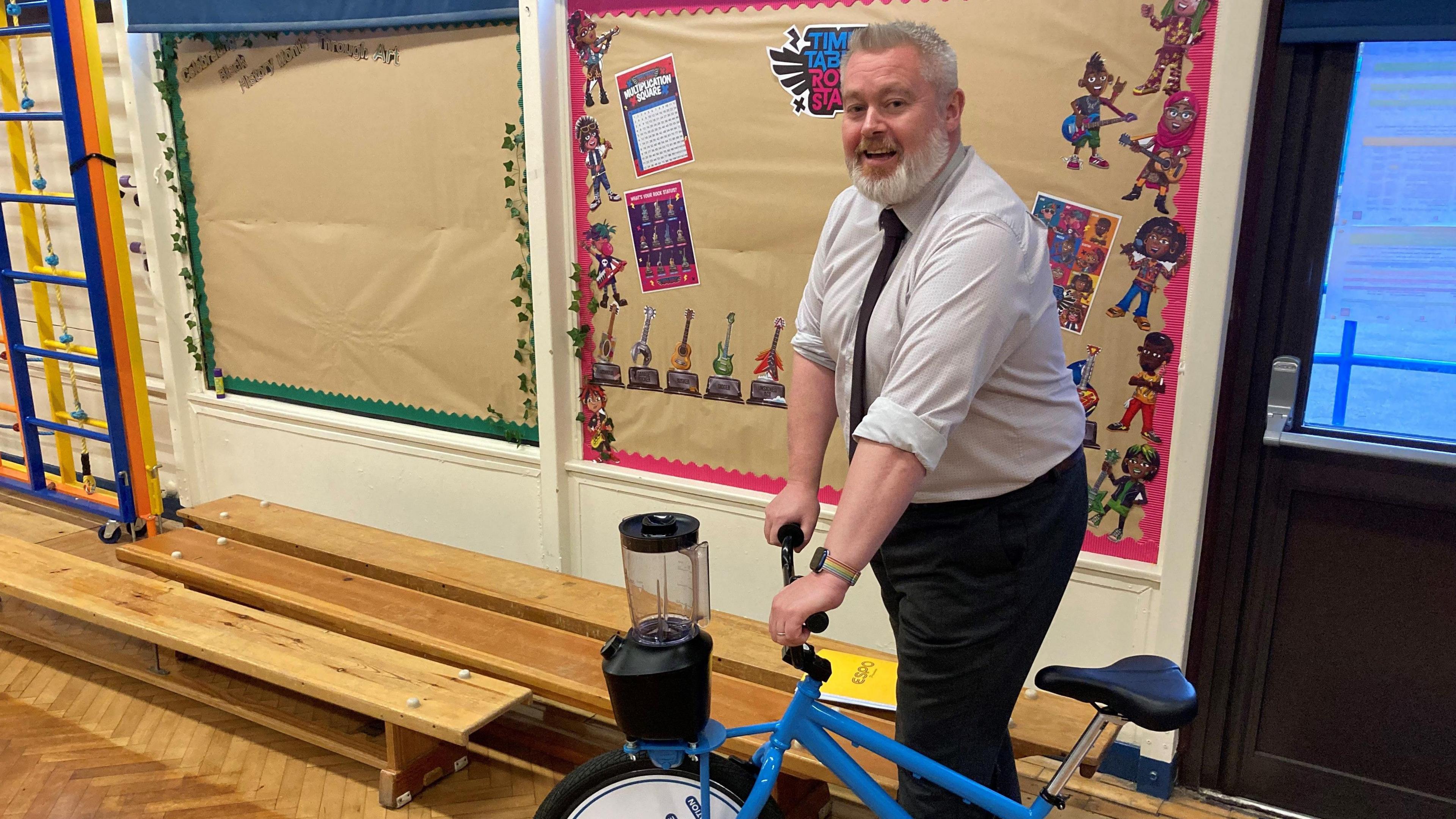Why are milk and water only on school drinks menu?

The changes come as Knowsley was found to have the highest proportion of obese and overweight 10-11-year-olds in the country
- Published
Children will only be allowed water or milk on their school drinks menu as part of a campaign to tackle obesity.
Thirty primary schools across Knowsley are taking part in a healthy schools programme run by the council and the school meals service which will see a variety of changes to help children to stay healthy.
Recent NHS data found that the Merseyside borough had the highest proportion of obese and overweight 10-11 year olds in England.
Colin Richardson, head teacher at Westvale Primary School in Kirkby which has joined the initiative, said the children were "responding well" to the changes.
Mr Richardson said children had adapted to only having milk and water as a drink and these changes were just one of many.
He told BBC Radio Merseyside: "Children have got to have opportunities to develop their health and wellbeing and then we can educate them so it's thinking about exercise, thinking about the amount of sugar they consume."

Colin Richardson, head teacher at Westvale Primary School in Kirkby, with a smoothie maker bike
The school also encourages pupils to walk or ride a bike to school and even has a smoothie maker which can only be used by pedal power.
Healthier meals have also been introduced, including more varieties of fruit and fewer desserts.
"We notice that after lunch time they do become a little bit more tired and so with the afternoon lessons we do really need to start off with a little bit of a spring in our step, so we'll do things like the daily mile, little bits of exercise on the way in, just to get them going, energise them," Mr Richardson said.
'Higher risk'
In the data, more than 30% of 10-11-year-olds were defined as obese, with an additional 14.9% of children defined as overweight, meaning almost half (45.6%) of them are either obese or overweight.
Knowsley also has one of the highest rates of obese and overweight reception-aged children in the country.
More than 13% of four-and-five-year-olds were defined as obese in the 2023/24 academic year and a further 15.3% identified as overweight.
According to NHS health advice, obesity can have a seriously detrimental impact on physical and mental health and can even shorten a person’s life expectancy.
Dr Sarah McNulty, Knowsley’s Director of Public Health, said the programme, which she hopes will expand to secondary schools, is about offering children healthier options.
"We want to make sure what they get to eat in school is as nutritious as possible," she said.
"If you are overweight or obese as a child you're much more likely to continue to be overweight or obese into adulthood and then you start to accumulate the higher risk of many long term conditions.
"If you start off in life at a healthier weight you are much more likely to retain a healthier weight throughout your adulthood".
Additional reporting from Elliot Jessett, Local Democracy Reporting Service.
Listen to the best of BBC Radio Merseyside on Sounds and follow BBC Merseyside on Facebook, external, X, external, and Instagram, external. You can also send story ideas to northwest.newsonline@bbc.co.uk, external
Related stories
- Published21 March 2024

- Published15 June 2023

- Published26 January 2024
